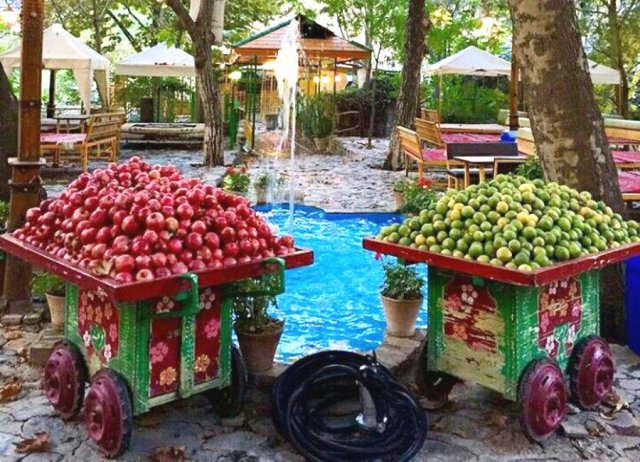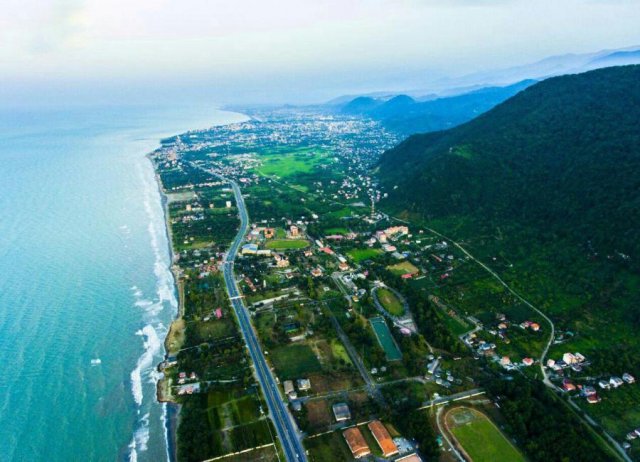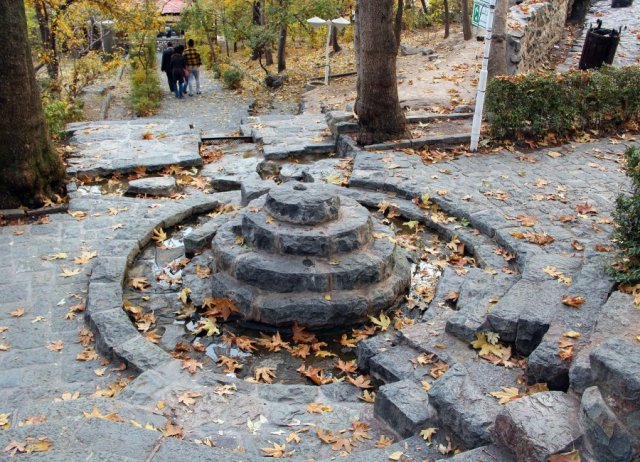Jamshidieh Park
This popular in town escape stretches ever more steeply up the mountainside at Tehran’s northern edge and is home to four ‘ethnic’ teahouses. The setting is stunning and the further you climb the better the views of Tehran’s sky- line – it’s great at dusk, but freezing cold for much of the year. All restaurants serve Iranian food at tourist prices and are known for (you guessed it) their kababs. For our money, the pick are (conveniently) the first two as you head uphill.
The premises was established as a private garden by the Qajar prince and engineer Jamshid Davallu Qajar during the Pahlavi era, the garden was dedicated to Farah Diba, the empress of Iran. The Stone Garden became a public park in 1977, it was reconstructed and expanded 16 hectares with the addition of Ferdowsi garden in 1995
The stone garden’s main waterfall and pond are central to the garden’s design, the walk paths accommodate a network of small and narrow channels that bring water from the pond to the lower areas of the park, creating smaller water features. There are numerous restaurants, traditional teahouses (houses of culture which represent the diversity of Iran’s ethnic and tribal heritage), picnic areas, and hiking trails from the lower area of the park all the way up to the top of the mountain. There is also a classically designed open air amphitheatre.
Points Of Interest
This village, at 1700m elevation and just north of the no-torious Evin Prison, is one of Tehran’s most pleasant urban escapes
At 370,000 sq km the Caspian (Darya-ye Khazar) is five times the size of Lake Superior.That makes it by far the world’s largest lake.
This popular in town escape stretches ever more steeply up the mountainside at Tehran’s northern edge



